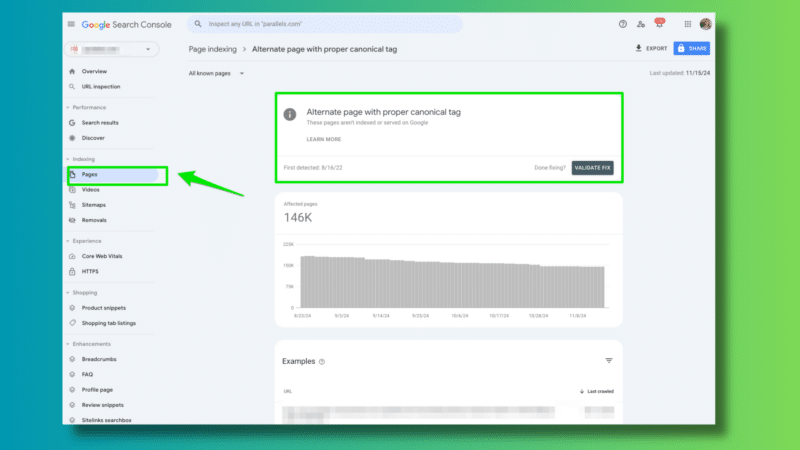
Understanding the “Alternate Page with Proper Canonical Tag” Error in Google Search Console
Navigating the complex landscape of SEO can sometimes feel overwhelming, especially when faced with issues like the “Alternate page with proper canonical tag” error in Google Search Console. This error typically signifies problems with duplicate content or parameterized URLs, which can severely affect website indexing and visibility. In this article, essential strategies for effectively resolving this error will be presented, providing valuable insights for developers, marketers, and SEO professionals.
The first step in addressing this issue is to export sample pages flagged in the Google Search Console. By accessing the relevant report, developers can gain a clearer understanding of which pages are causing discrepancies. Once this data is collected, it becomes crucial to identify parameter URLs that may be leading to canonicalization issues. Filtering exported data for URLs containing parameters is an effective method of pinpointing problematic areas in the site structure.
Another common source of confusion is the incorrect handling of language subfolders, which can trigger the same error. If two URLs feature identical content in the same language, Google may promote one as the canonical version, leading to indexing issues. It’s imperative for developers and content marketers to ensure that their language subfolder strategy is clear and optimized. Moreover, adding trailing slashes to URLs consistently can help mitigate duplicate content issues, as differing variations (with and without trailing slashes) confuse search engines. Implementing 301 redirects from URLs lacking trailing slashes to their counterparts will seamlessly resolve this complication.
The case sensitivity of URLs is another aspect that should not be overlooked. Search engines may regard uppercase and lowercase URLs as distinct entities, resulting in unintended duplication. Therefore, introducing 301 redirects from uppercase versions to their lowercase counterparts is an effective practice that any developer should incorporate while structuring URLs.
There are no shortcuts to rectifying this canonical error. A deep understanding of Google’s algorithms concerning duplicate content is fundamental for effective SEO practices. Ultimately, these practical strategies not only contribute to resolving the error but also optimize website URLs to enhance canonicalization, bolstering search engine indexing.
SEO Strategies for URL Shortening
The recent discussion around canonical tags can be closely linked to URL shortening techniques, which play a pivotal role in modern SEO as well. URL shorteners and link management tools are essential for developers and marketers aiming to streamline their links for better analytics and user experience. Furthermore, custom domain implementations for URL shorteners can elevate brand visibility while maintaining neat and structured links, essential for both user engagement and search engines’ understanding.
Moreover, when utilizing short links, the risk of creating duplicate content increases if not managed correctly. By ensuring that shortened links redirect appropriately and do not create confusion about canonical URLs, marketers can maintain both a clean aesthetic and an effective SEO strategy. This serves as an important reminder that strategic link management is a vital element of an effective SEO plan.
Employing these techniques fosters both user understanding and better search engine indexing. Combining proper canonicalization with savvy link shortening strategies creates a robust framework for enhanced digital marketing efforts.
Conclusion
In conclusion, addressing the “Alternate page with proper canonical tag” error is not just about fixing technical SEO flaws but also about implementing a comprehensive link management strategy that enhances overall site performance. Addressing these issues will not only improve website indexing but also contribute to a seamless user experience across digital platforms.
Hashtags: #BitIgniter #LinksGPT #UrlExpander #UrlShortener #SEO #DigitalMarketing #LinkManagement
Vous voulez en savoir plus: En savoir plus

